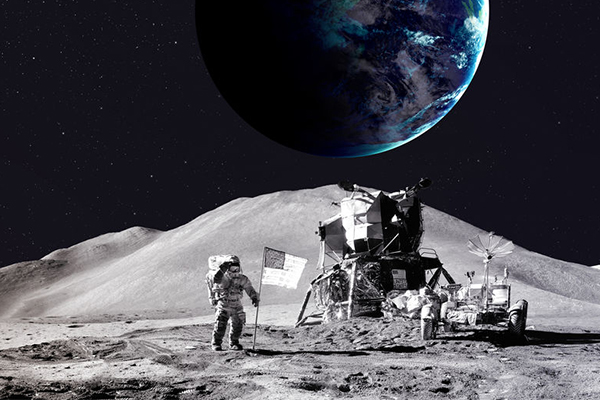50 years since we landed on the moon: Why has it been so hard to return?

Almost 50 years since we first landed on the moon, NASA has made a major announcement, saying it’s making a return.
It also reveals a bold plan to establish a permanent moon base.
Astronomist Doctor Alan Duffy tells Ben Fordham “it’s about time”.
“It feels like a long time since they were last there.
“This time, they’re doing it right, they’re planning on staying.”
Dr Duffy says there are “many reasons” NASA hasn’t returned to the moon.
“Mostly it’s because the Saturn V, the rocket that took Neil Armstrong and the rest of those heroes… was an incredibly expensive rocket that was designed to win a race.
“There was no real plans or idea on how to stay in a more permanent and sustainable way.
“It was too expensive, they had other other priorities, they let the technology lapse.
“50 years later, we’re in a very different position.”
Click PLAY below to hear the full interview
He says the discovery of water on the moon plays a major role in NASA’s ability to create a base.
“We can drink [the water], we can use it to make rocket fuel, everything we need essentially to make the interplanetary presence.”
Dr Duffy tells Ben he hopes to see the moon base by the end of 2020, with a presence on Mars by the 2030s and 2040s.



